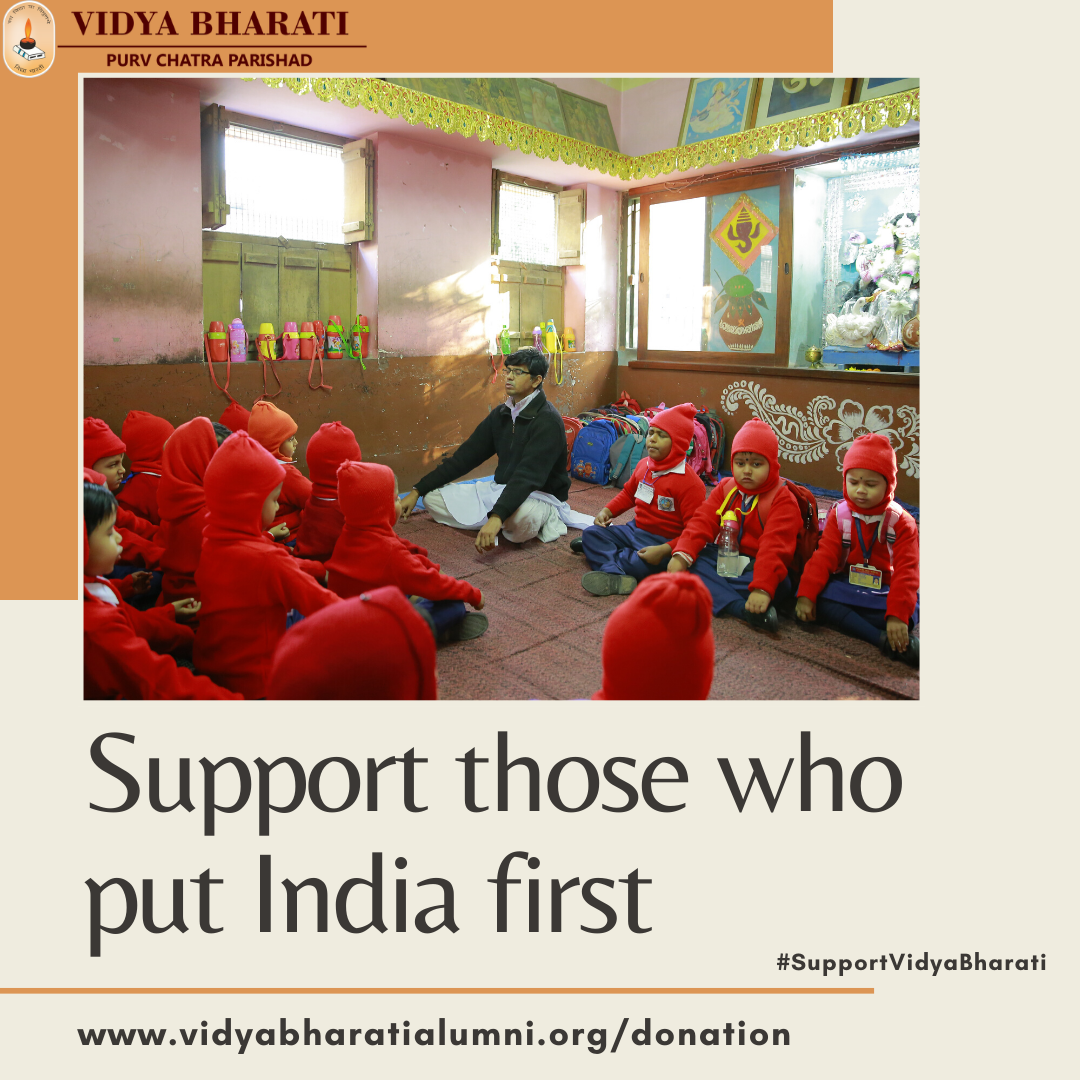In talks with Dr. Dibyendu Deb -Vidya Bharati Alumni from Coochbehar and scientist at Indian Council of Agricultural Research
In talks with Dr. Dibyendu Deb -Vidya Bharati Alumni from Coochbehar and scientist at Indian Council of Agricultural Research
India is primarily an agricultural country, with a large sector of the economy directly and indirectly dependent upon it. Thus it is essential that importance is given towards research and development towards this area. Indian Council of Agricultural Research (ICAR) under the Ministry of Agriculture and Farmers Welfare plays an important role in such. ICAR has its headquarters at New Delhi. The Council is the apex body for coordinating, guiding and managing research and education in agriculture including horticulture, fisheries and animal sciences in the entire country.
Vidya Bharati alumni from Coochbehar, West Bengal, Dr. Dibyendu Deb for more than a decade has been working as a scientist under ICAR. Recently he shared his journey via a brief interview, which has been summarised below.
Interviewer: Please tell us something about your academic and professional background?
Dr. Deb: My educational journey started from Sarada Shishu Tirtha, Coochbehar, where I had studied till class IV and then later shifted to Jenkins School to complete my schooling. For my higher education, I joined Uttar Banga Krishi Viswavidyalaya, Coochbehar for a B.Sc Agriculture degree. I did M.Sc in Computer Science from Indian Agricultural Statistics Research Institute (ICAR), Delhi. I returned to Uttar Banga Krishi Viswavidyalaya to do a PhD in agricultural statistics.
In the work front, I had worked as a Software developer in TCS for over a year before joining ICAR as a scientist in 2009. Presently I am stationed in Jhansi, Uttar Pradesh.
Interviewer: What suggestion would you give to any Vidya Bharati student who wants to follow a similar career path as yours?
Dr. Deb: If anyone would like to join this line, one has to be very patient as it takes a long time. After Graduation with agriculture, one has to devote a few years toward academics. When I had started the minimum qualification for this post was Masters, but now the candidate has to do PhD before sitting for the exam.
It is difficult for most of Indian students from middle class families to devote so much time towards education as they want to start earning quickly, but if one truly wants to join this sector one needs to wait for a long time.
Interviewer: Why did you take up agriculture as your field of study?
Dr. Deb: I belong from a middle class family and wanted to secure a good job. At that time Agriculture studies was something new and not many people went into it. I got a good mentor, a friend of my father who guided me to this sector. I felt as it is new, the competition will be less and thus if I have the mentality to study for longer years I have a chance of success. Thus I chose this field of study.
Interviewer: Please tell us something about your family.
Dr. Deb: I come from a village in Coochbehar. My father is a retired public prosecutor and my mother is a homemaker. I also have a brother, my wife and two children. My father also had good knowledge and had guided me in every stage of my academics and career.
Interviewer: Can you share your school experience?
Dr. Deb: I had passed out at a very young age, but what I remember the most is the affection and care with which our teachers taught us. They treated us as family alongside providing good quality education. Though I stay far away from my home I still maintain contact with my teachers and visit the school during Durga Puja festival.
Interviewer: Are you associated with any kind of social work?
Dr. Deb: Actually my job entitles a lot of social service. Apart from our daily duties, Indian government has made it mandatory for scientists to adopt a village each and look after its development. Thus we spend a lot of time in villages organising awareness camps on varied topics for farmers and general population as well.
Interviewer: Would you like to share any message with the community.
Dr. Deb: I am a parent of two very young children and would like to urge all parents to give a lot of stress towards proper development and education of children belonging in the primary section. It is vital at this point that along with studies they get to know about their culture, and importance of social service.
Vidya bharati Purv Chatra Parishad thanks Dr. Dibyendu Deb for taking out time and sharing his inspirational journey with the community.
If you are a Vidya Bharati alumni and would like to share your story, thoughts and achievements as well, please email us your contact details to info@vidyabharatialumni.org and we will get in touch with you.
Category
- Alumni Interviews (191)
- Social Service (130)
- Alumni Achievements (27)
- Vidya Bharati Schools (27)
- Events and News (22)
- Vidya Bharati Teachers (12)
- Environment and Sustainability (4)
- Social (1)

